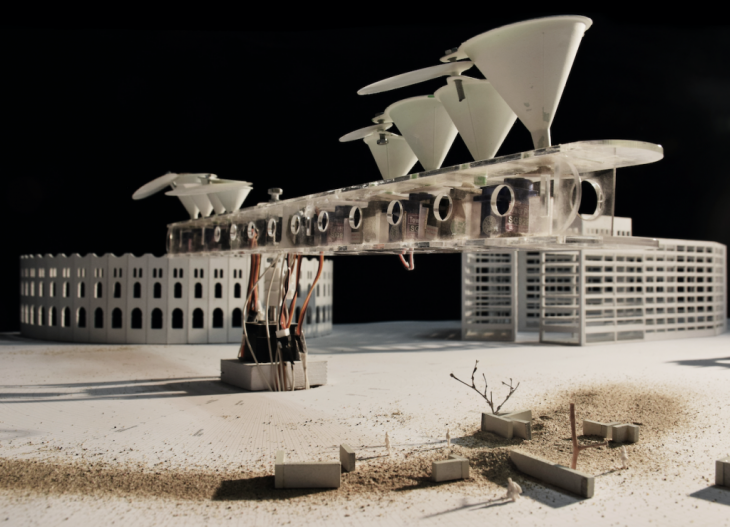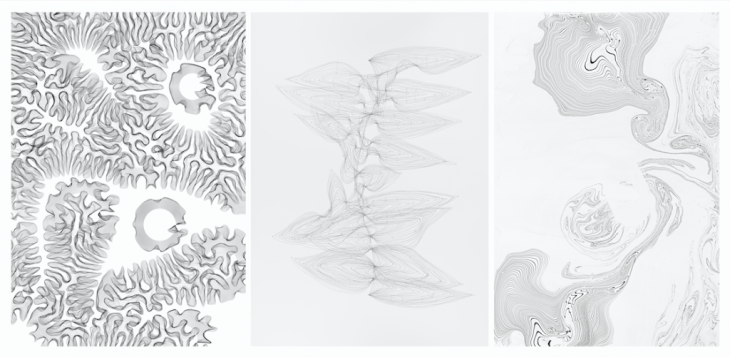Introductory Studio
Design for the Experience Age
Group 1 – Machinic Protocols
–
Senior Faculty: Edouard Cabay
Faculty: Rodrigo Aguirre
Assistant: Peter Magnus
Programming the perpetual unknown
In a fast changing world in which culture and trends evolve so quickly, the time frame of the construction of a building sometimes can mean that the outcome is out-dated before it is even completed. How can we, as architects, trained to design heavy concrete foundation and assemblies of static physical elements, integrate the notion of change in architectural design?
Can time become a protagonist dimension in our work, and how can we plan for a future that we do not know? The life of a place is bound to perpetually change in an unpredictable manner; can this become the driver in a process of planning space?
Machinic Protocols proposes a methodology that addresses the notion of control and the integration of unknown forces in design. And for this sake, it develops a working process that relies on our capacities to compute, which means to calculate, to predict or to adapt… with and without computers.
 Active Public Space, Introductory design studio, Plaza Espanya, Open Program 2015, Performative model
Active Public Space, Introductory design studio, Plaza Espanya, Open Program 2015, Performative model
In order to tackle such complex issues, the studio will concentrate the first weeks on the development of an automated machine: a board game. A game that is played by several players, that always produces different results when being played; a game that could be computed to beat Kasparov, such as Chess and Ke Jie at the game of Go; the board game that occurs in an environments – the board – and links actions and actors in time…
 Exhibition Auto-Màtic, Barcelona, 2018
Exhibition Auto-Màtic, Barcelona, 2018
We will construct these games as machines that perform autonomously, driven by orders and by data input: machines that can displace grainy materials on a flat surface, that integrate sensing devices to create a feedback loop between a process that happens and that is simultaneously being mapped. These machines will eventually lead towards a perpetual movement, an ever-changing landscape of actions and reactions, they will ultimately be set alive, autonomous, automated.
 Generative drawings, Exhibition Auto-Màtic, Barcelona, 2018
Generative drawings, Exhibition Auto-Màtic, Barcelona, 2018
As designer of these games, besides physically constructing them, we will design the set of rules that animate them and call it a “protocol”. The running of these rules will produce iterations and touch upon the question cycles. This rule set is what will enable us to jump into architectural projects, giving meaning the board game as real architectural situation, where people and material systems cohabit and confront, affect themselves and react to each others. We will work with systemic topics such as water, energy, waste, vegetation, food, light as drivers that affect both one another but also the manner in which a place can live and evolve in time.